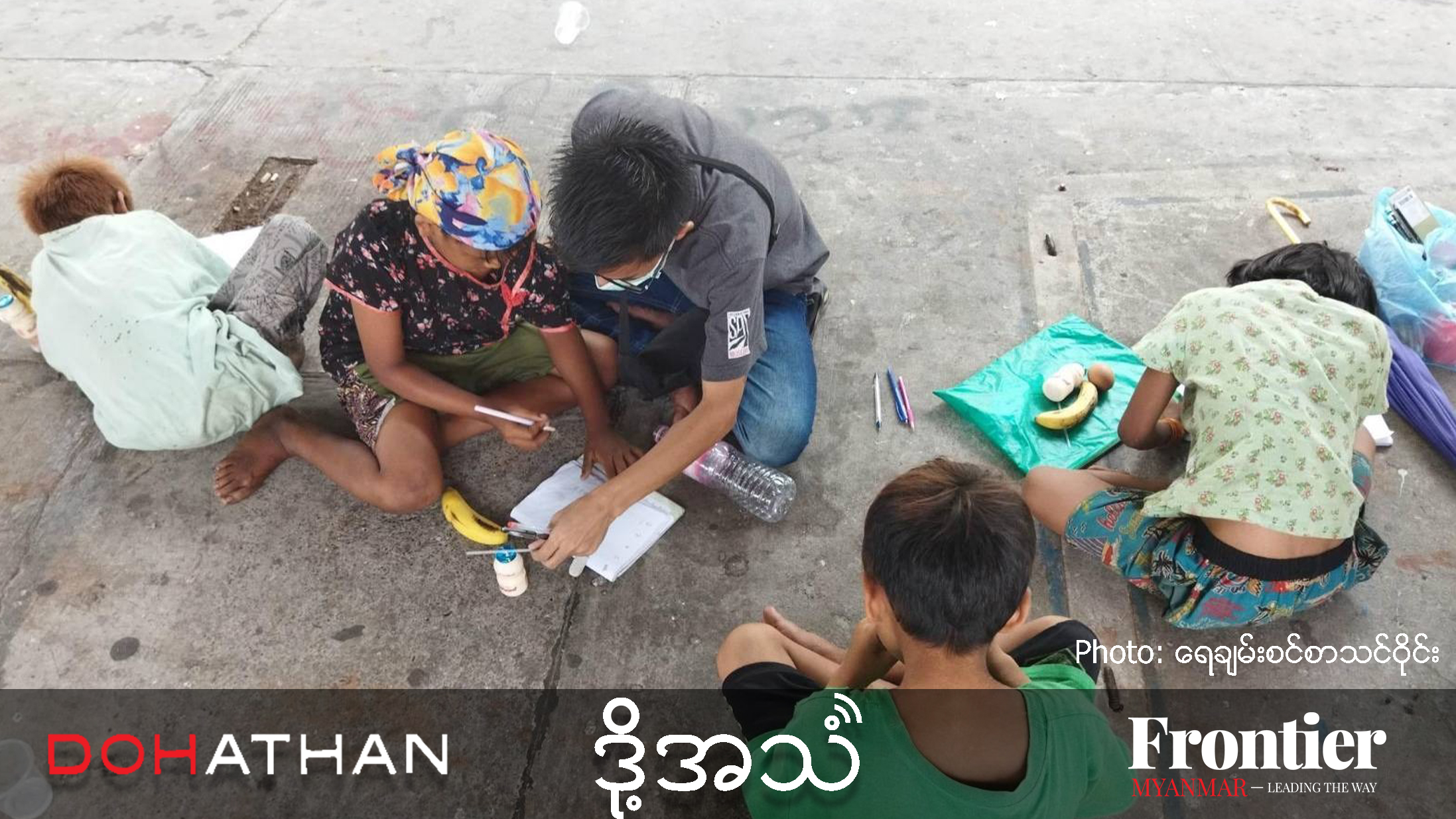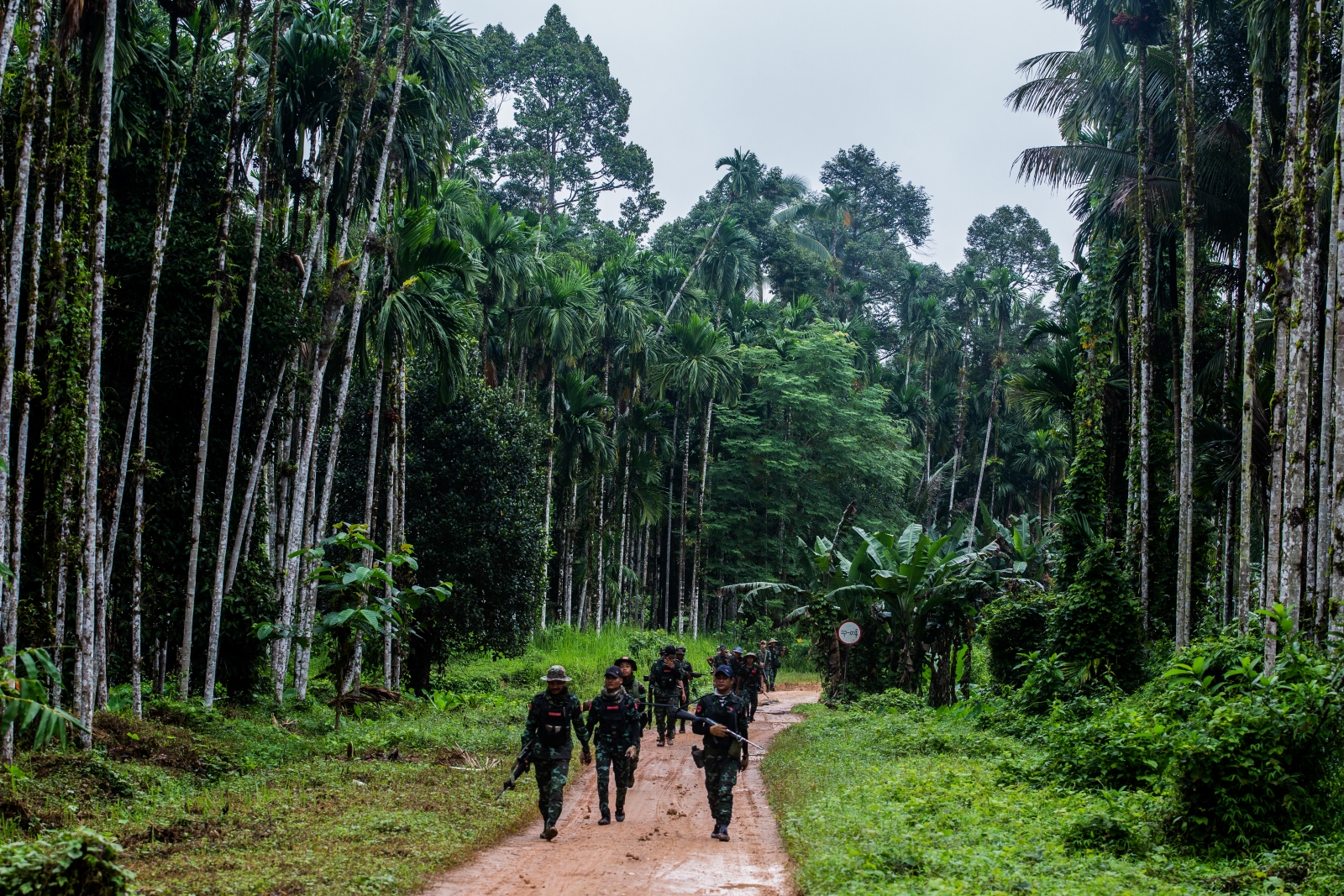OPINION
Mastery of English has defined social status to varying degrees since the colonial era, but the economic fallout from the coup has strengthened its power to both uplift and exclude.
By KAUNG THANT NYEIN | FRONTIER
A few months ago, an acquaintance in Yangon told me about his desire to open a small English language academy with affordable prices, as well as a library of English-language books. He hoped that after attending his classes, people would widen their knowledge of the world through Anglophone media and literature. Although this plan has yet to materialise, it got me thinking about the relationship between English and social status in Myanmar.
This relationship can be traced back to the country’s last royal dynasty, which ruled from the mid-18th century. The Konbaung kings employed English-speaking locals and foreigners to communicate with the increasingly powerful British East India Company. However, the real marriage of English and political power began with colonisation in the 19th century. The occupying British introduced a secular education system where the top schools taught only in English. Those wanting a university degree went to India, where courses were also taught in English, until Rangoon and Judson colleges were merged to form Rangoon University in 1920 with a largely European academic staff. The student boycott of 1920 demanded, among other things, that fluency in English not be required for admittance to the university, in what has come to be considered a foundational moment for the anti-colonial nationalist movement.
But while the strike arguably planted the seeds for independence, the language requirement remained and an English-speaking elite came to dominate the colonial administration. Burmese, meanwhile, came to be seen as the language of the uncultivated. Even Maung Htin Aung, a nationalist historian who made it his life’s mission to counter the distortions of European scholars, wrote several books on Myanmar folklore, custom and religion in English.
More than a decade after independence, in 1962, General Ne Win staged a coup and cut the country off from the world. Western-educated individuals were dismissed or demoted to minor positions and universities were ordered to change their language of instruction from English to Burmese. The learning of English was reserved for children older than 10 and the departure of most of the foreign professionals and businesses from the country meant that English became all but obsolete as a means of communication.
In 1988, a new military regime came to power and reversed many of these policies. Children could again learn English starting from five years old, while mastery of English became once more synonymous with academic achievement. Textbooks for the sciences, which are required for entering the coveted professions of medicine and engineering, were produced in English, while the textbooks for subjects chosen by lower-achieving students, such as history and geography, were published in Burmese. Meanwhile, PhD programmes, which increased during the 2000s, required students to submit their work in English.
However, the quality of state-provided education remained poor during the decades preceding the 2021 military coup. Despite attending English classes throughout their time at school, children were mostly not encouraged to read beyond their textbooks. Meanwhile, rather than testing for grammar or creative language use, exams merely required them to repeat passages they had memorised in advance. Marks were even deducted for adding additional sentences or paraphrasing texts. The result was a very limited grasp of English. Most of the PhD students I knew would even write their thesis in Burmese before hiring someone to translate it.
At the same time, economic liberalisation after 1988 created more private opportunities to learn English – but on a highly unequal basis. Families with money could send their children to study abroad more easily than before, and could also enrol them in expensive English classes that proliferated in Myanmar’s big cities. Meanwhile, elite private schools hired native English speakers and charged steep fees. But in a poor and conflict-ridden country like Myanmar, most people were denied these learning opportunities. And so, like in the colonial era, English became the great social divider, and a gateway to wealth and power.
In her book The Politics of Cultural Capital, British scholar Julian Lovell referred to “the Nobel complex” to describe post-Mao China’s preoccupation with its citizens winning Nobel prizes, and the sense of insecurity and need for recognition that this reveals. A similar complex is arguably at work in the Myanmar people’s adoration of Daw Aung San Suu Kyi. This is not only because of her receipt of a Nobel Peace Prize in 1991, but also her superior command of English and related status as an Oxford graduate. This meant she was perfectly placed to communicate the desires of the Myanmar people to the world, but it also set her apart from the ruling generals, who were disdained for their intellectual crudeness and need for interpreters during meetings with foreign diplomats.
The “English complex”, as it might more accurately be called in Myanmar, is sometimes absurdly counterproductive. A professor in Yangon told me of a time about five years ago, when his university was invited to send a student to an environmental conference in Manila. Eager to show that Myanmar students could speak English well, the administrators sent a student from the English department who was said to be fluent. The trouble was, he knew next to nothing about the environment and so didn’t contribute anything to the conference.
But despite these excesses, there are hard economic factors behind the pre-eminence of English and its status relative to other foreign languages. The most sought-after jobs include jobs in foreign firms and embassies, international NGOs and United Nations agencies, all of which require a high level of English. These jobs have become even more attractive amid the economic downturn following the 2021 coup, partly because they pay in foreign currencies, which have become far more valuable as the Myanmar kyat has collapsed.
Few people are qualified for these positions, while wages in other sectors often fail to cover the rising cost of living. Many are therefore heading to work overseas in record numbers, primarily in wealthier Asian countries. This exodus has only intensified with the junta’s implementation of the military service law, but ever since the coup, entrepreneurs have been opening private language academies teaching Japanese, Korean and Chinese. Walking around the busy Yangon neighbourhoods of Hledan or Myaynigone, you can see these academies everywhere.
It’s also easy to spot the students from their uniforms – mostly young people who need to pass language tests to get menial jobs in the relevant country. In fact, several of my friends now dream about working in Japan as a paper boy or an assistant in an elderly care facility. These Asian languages, therefore, aren’t considered languages of higher learning and mastering them doesn’t carry the same prestige as English.
Learning English also offers a route out of Myanmar through higher education, with many youths now taking TOFEL and IELTS exams in order to attend universities in the West – or in other Asian countries that offer degree courses in English. But again, this pathway is only open to those from more privileged backgrounds, and is another example of how the coup has furthered class divides – with English helping to widen the gap.
More than a century on from the student boycott at Rangoon University, a colonial-era hierarchy remains intact and is even gathering strength, limiting what millions of people are able to achieve in life.
Kaung Thant Nyein is the pen name of a Myanmar-born independent researcher based in Chiang Mai who has contributed to The Irrawaddy, Tea Circle and LSE Blogs.







